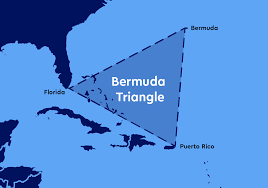The Merchant Navy plays a vital role in connecting nations through maritime trade, transporting goods, raw materials, fuel, and passengers across oceans. It operates quietly behind the scenes, yet it is the backbone of global commerce. Merchant Navy Day is a significant occasion that recognizes the contributions and sacrifices of merchant seafarers. Celebrated in various countries on different dates, the day serves as a tribute to those who have risked their lives to ensure the smooth operation of the world’s shipping industry.
What is the Merchant Navy?
The Merchant Navy, often referred to as the Merchant Marine in some countries, is a fleet of commercial ships that engage in the transportation of goods and passengers. Unlike a country’s navy, which focuses on defense and military operations, the Merchant Navy serves commercial purposes but can be called upon during times of war or national emergency to aid in transporting troops, supplies, and essential goods.
The Merchant Navy comprises different types of vessels, such as container ships, bulk carriers, oil tankers, passenger liners, and specialized ships like LNG carriers. Its officers and crew are skilled professionals trained to navigate, operate, and maintain these massive vessels under challenging conditions.
History and Significance of Merchant Navy Day
Merchant Navy Day has historical roots tied to the world wars, especially the First and Second World Wars, when merchant ships played a crucial role in supplying armies and civilian populations. Many merchant seafarers lost their lives during these conflicts, often targeted by enemy forces despite being civilians.
For example, in the United Kingdom, Merchant Navy Day is observed on September 3 each year, marking the anniversary of the sinking of the British merchant vessel SS Athenia in 1939, just hours after Britain declared war on Germany. This tragic event highlighted the vulnerability of merchant ships in wartime and the courage of those who sailed them.
In India, Merchant Navy Week is celebrated annually during December 5–11, with December 4 being National Navy Day (for the Indian Navy) and Merchant Navy Day observed during the week to honor civilian mariners who contribute to the nation’s economy and maritime trade.
Why Merchant Navy Day is Important
Merchant Navy Day is not just a symbolic occasion—it serves several purposes:
-
Recognition of Seafarers – Merchant Navy personnel often work in harsh and dangerous environments, facing storms, piracy threats, and long separations from family. This day acknowledges their dedication and professionalism.
-
Historical Remembrance – It keeps alive the memory of seafarers who lost their lives in conflicts, ensuring future generations understand their role in securing nations’ survival during war.
-
Public Awareness – Many people are unaware of how dependent their daily lives are on maritime trade. Merchant Navy Day helps educate the public about the importance of shipping in global commerce.
-
Encouragement for Maritime Careers – By honoring the profession, Merchant Navy Day can inspire young people to consider careers at sea, which are crucial for sustaining the industry.
Celebrations and Traditions
The way Merchant Navy Day is observed varies between countries but often includes the following:
-
Flag Hoisting – The Red Ensign (in the UK) or the national merchant fleet flag is flown on public buildings, ships, and maritime institutions.
-
Wreath-Laying Ceremonies – Memorials and monuments dedicated to merchant seafarers see gatherings where wreaths are laid to honor the fallen.
-
Public Campaigns – Maritime organizations run awareness drives, exhibitions, and educational programs to highlight the role of the Merchant Navy.
-
Media Tributes – Documentaries, interviews with retired and active mariners, and historical retrospectives are aired to reach a wider audience.
In some ports, ships sound their whistles at a designated time to mark the occasion, and special gatherings take place at seafarers’ welfare centers.
Challenges Faced by Merchant Navy Personnel
The significance of Merchant Navy Day becomes even clearer when we consider the difficulties faced by seafarers:
-
Extended Time at Sea – Crew members can spend months away from their families, with limited communication.
-
Adverse Weather – Navigating through storms and rough seas requires skill and courage.
-
Piracy and Security Threats – Certain maritime routes are prone to piracy attacks, risking lives and cargo.
-
Isolation and Mental Health – Life at sea can be isolating, leading to stress, anxiety, and depression if not managed well.
-
Economic Pressures – Fluctuating freight rates and global economic challenges can impact employment and wages in the industry.
By recognizing these challenges on Merchant Navy Day, governments and industry bodies can renew efforts to improve working conditions, safety standards, and welfare measures for seafarers.
The Future of the Merchant Navy
The Merchant Navy is adapting to new challenges, including environmental regulations, digitalization, and automation. Green shipping initiatives, alternative fuels like LNG and hydrogen, and smart navigation systems are transforming the industry. While technology is reducing certain manual tasks, the role of skilled seafarers remains irreplaceable.
Merchant Navy Day also serves as a reminder that the industry must evolve responsibly—balancing efficiency, environmental protection, and crew welfare.
Conclusion
Merchant Navy Day is more than a date on the calendar—it is a heartfelt tribute to the men and women who keep global trade flowing. Without them, economies would grind to a halt, supply chains would collapse, and nations would struggle to function. Whether in times of peace or war, merchant seafarers have shown resilience, bravery, and dedication to duty.
By observing Merchant Navy Day, we not only remember the sacrifices of the past but also acknowledge the ongoing contributions of today’s mariners. It is a day to say “thank you” to those who sail the world’s oceans, unseen by most, yet essential to all.
